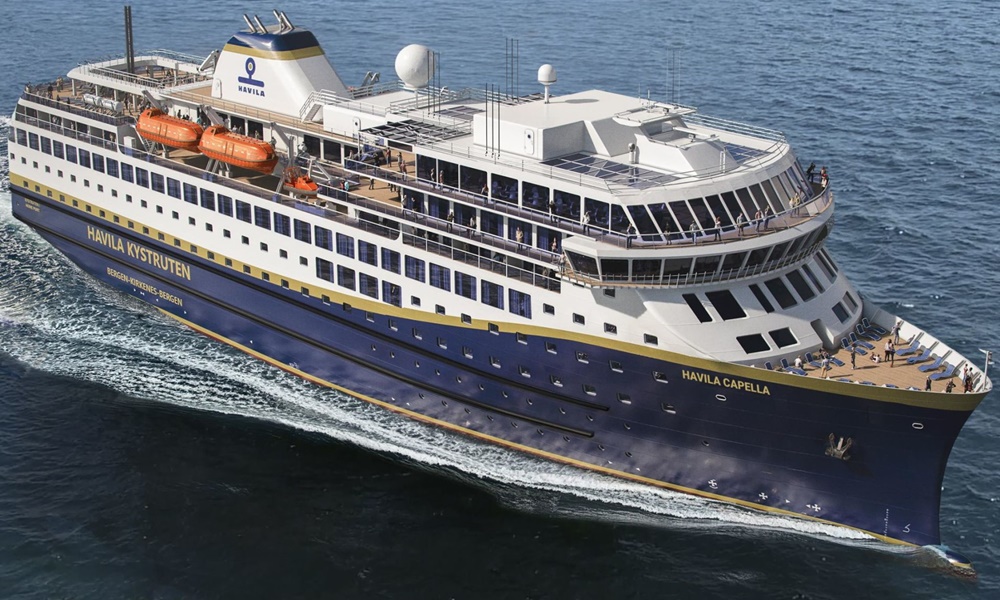At the Nor-Shipping event held recently in Oslo (Norway), Havila Capella ferry - the world’s most environmentally friendly coastal ship - received the Next Generation Ship Award.
During the Ocean Leadership Conference on April 4, Havila Voyages’ ship was officially announced as the winner of the special award. Havila Capella's groundbreaking technology allows the ferry to sail with zero emissions.
The award honors a ship project demonstrating the advances and innovation in design with respect to technology utilization, energy efficiency, environmental sustainability, suitability & flexibility, safety & security for the coming decade. The vessel was designed by Hav Group and constructed at Turkey's Tersan Shipyard.
Havila Capella is a plug-in hybrid cruise ship with the largest battery packs designed for passenger ships in the world. The battery pack has a capacity of 6,1-MWh and weighs 86 tons. The batteries onboard the ferry allow her to sail for 4 hours without noise/emissions, meaning Havila Capella can sail quietly/sustainably through pristine surroundings and fjords along the Norwegian coastline.
Havila Voyages spent NOK 500+ million to make their eco-cruiser vessels environmentally friendly. The battery packs are just one of a number of measures that cut NOx emissions by ~90% and CO2 emissions by ~25%. In addition, the ferries are built to run on biogas, a carbon-neutral biofuel. They are also prepared to run on hydrogen/ammonia and are therefore ships built for the future. The groundbreaking technology is developed in partnership with Kongsberg Maritime, Hav Group, Hav Design, and scientific networks.

The food concept onboard, “Havila Food Stories”, has sustainability as its major ingredient. There are no buffets, which means that passengers can enjoy a highly personal Norwegian culinary experience with handpicked ingredients from local producers, and a target of max 75 grams of daily food waste per guest. This concept cuts food waste by 15 tons per ship annually, and to make the cruise ship even more efficient, it has a waste energy recovery system that makes use of the 65 % of fuel energy (normally lost through the exhaust/cooling water systems).